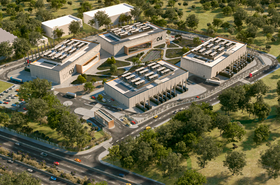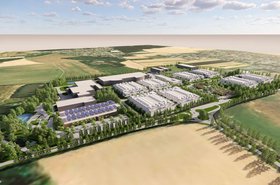As global digital consumption continues to soar, organizations are becoming increasingly reliant on data centers.
In response, data center operators are taking the helm of ambitious growth strategies, all the while championing sustainability initiatives, quality of service, and employee satisfaction.
Balancing these commitments in a way that also facilitates aggressive data center growth is no easy task, and there are some pitfalls that all operators should be aware of. Read on to discover my best practice rules for operating a data center at scale.
1) Never compromise on quality
When it comes to designing a data center, my first rule is to never sacrifice quality for speed. The top priority should always be creating an infrastructure that will stand the test of time, and skipping over something in the early stages will only lead to trouble later on.
However, with the rapidly changing technological landscape, it’s impossible to predict what will become possible over the next few years. As such, it’s important that data centers are designed with maintenance and updates in mind, to allow for the seamless introduction of new technology.
2) Prepare for the worst-case scenario
Complacency could be your downfall, so be strict with your precautionary measures. Just because something is working now, that doesn’t mean that there won’t be an issue down the line. Check your equipment as often as your manufacturer recommends – and then check it again. While some problems are simply unavoidable, operators must become as adept as possible in foreseeing everything, even the unforeseeable, by implementing robust preventative strategies.
3) Be selective with suppliers
It’s important to strike the right balance between too few and too many suppliers. For key components, like generators, Data4 only has two suppliers that we really plan ahead with. Overdoing the number of suppliers can become a nightmare to organize, but too few leave you susceptible to disruption in the event of supply chain issues.
Also remember that as you scale up your data center operations, you need to bring your whole ecosystem with you, and that includes your suppliers. Rigorous checks from the design committee will ensure that your supplier is ready to grow at the same pace as you are.
4) Put the customer first
The customer is always king. It takes time to gain customer trust, but only a second to lose it. By implementing a customer-centric approach to your operations and decision-making, you will be rewarded with loyalty.
5) Build a winning team
You’re only as good as your people, so take time to analyze the efficiency of your team on the ground. Too small and you won’t get the work done, but too big and you might find that processes are delayed, which could lead to ineffective decision-making. Whatever your perfect size, be sure that every member of your team is trained to the highest standard, so they know your equipment inside and out.
6) Find strength in diversity
The best teams will be the most diverse – in terms of both people and skills. In fact, the two feed into each other a lot. Different people bring new perspectives, exciting ideas, and unique skillsets, so make sure to extend your talent pool and champion all voices. At Data4, we’re partnering with local suppliers to develop an academy, which will help encourage diversity in this industry.
7) Understand when to own up
It’s important to learn to take responsibility for your actions. In my time I’ve seen operators blame their customers, suppliers, even the weather. In the event of a quality-related problem, the operator must be the first to step forward and explain the failings and, crucially, the learnings.
8) Get local groups on side
Build a strong rapport with the authorities in your surrounding area, particularly the firefighters, electricity providers, and local utilities. These aren’t always the easiest relationships to make during the early stages of data center construction, but communication could prove vital in case of an emergency. Agreeing on what to do should an issue arise will be critical to ensure local teams can act swiftly and effectively.
9) Prioritize sustainable innovation
Sustainability should always be front-of-mind when scaling up operations. For the past few years, the conversation has largely focused on PUE, but now there’s a lot more to consider. At Data4, we’re integrating lots of new technologies, initiatives, and processes to ensure our approach is as sustainable as possible. This includes replacing standard fuel with renewable energy sources, ensuring the reuse of waste heat, and avoiding using the same sites for future centers to prevent land artificialization.
10) Align HR and sustainability strategies
Improving the industry’s energy usage and reducing its global carbon footprint are crucial steps to mitigating the effects of climate change, but there are other benefits to consider when approaching data center sustainability.
At Data4, we design campuses to be smart, user-friendly workplaces, full of green areas to boost employee wellbeing, and at the core of business is a set of principles that are aligned to our team’s values around climate issues.
By marrying our work environment with our sustainability goals, we create a space which is better for our people and better for the planet.
Data center growth is an inevitability that we ultimately have little control over. What we can control, however, is how we enable this growth.
Operators who prioritize scaling at the expense of their people, the quality of their offering, or their climate strategies might experience quick short-term gains, but only those who encompass all these considerations at once will be able to achieve sustainable data center growth for the future.
More on Data4
-

Data4 launches Polish data center campus outside Warsaw
Continues busy 2023 for company
-

Data4 announces second Spanish campus in Madrid
Work on third building at first campus ongoing
-

Data4 announces plans for third Paris campus
European operator acquires former Nokia HQ site


